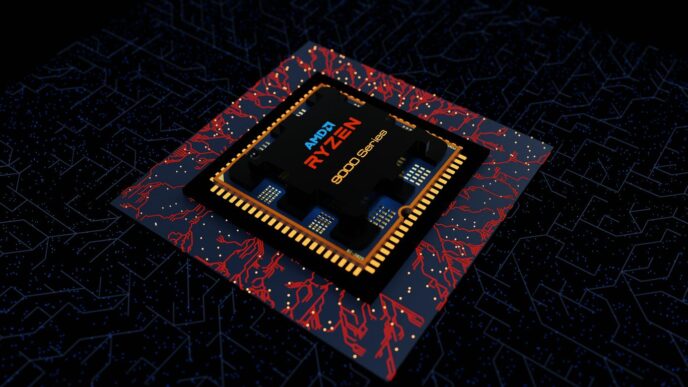Looking for semiconductor companies near me? It can feel like a big task, especially with how important these companies are. They make the chips that run pretty much everything these days, from your phone to your car. Figuring out where they are and how to connect with them is key if you’re in the industry or looking to get in. We’ll break down what these companies do, how to find them, and what it’s like to work there.
Key Takeaways
- Semiconductor engineers design, build, and test microchips used in everything from phones to medical equipment.
- Demand for semiconductor talent is high across industries like consumer electronics, automotive, and healthcare.
- Finding semiconductor companies near you involves checking key industry hubs and using online resources.
- Key roles include IC designers, process engineers, and failure analysis technicians.
- Attracting and keeping semiconductor talent means competitive pay, good benefits, and chances for career growth.
Understanding the Semiconductor Landscape
Semiconductor engineers are the brains behind the tiny chips that power pretty much everything we use daily, from our phones to our cars. They’re involved in designing, building, and testing these complex components. It’s a field that requires a lot of specialized knowledge, covering everything from materials science to intricate circuit design. The work environment can vary, but many roles involve working in cleanrooms, which are super sterile places to prevent contamination during manufacturing.
What Semiconductor Engineers Do
Basically, these engineers are responsible for creating the microchips and integrated circuits that are the heart of modern technology. Their job involves a few key areas:
- Design and Development: Using special software to map out how chips will work and be laid out.
- Manufacturing Process Development: Figuring out new ways to make chips better, faster, or more efficiently using different materials and techniques.
- Testing and Quality Assurance: Making sure the chips work exactly as they should and meet all the required standards.
- Collaboration: Working with lots of different teams, like the people who make the manufacturing equipment or other engineering departments, to make sure everything fits together.
The demand for these skilled professionals is really high right now. It’s a field that’s constantly pushing boundaries, which means engineers need to keep learning and adapting. This is a great time to get into the industry if you have the right background, but it also means companies are really looking for talent. You can find out more about the current state of the industry in this 2025 perspective report.
Industries Driving Semiconductor Demand
The need for semiconductors isn’t slowing down; in fact, it’s growing across many sectors. Think about it:
- Automotive: Cars are becoming more like computers on wheels, with advanced driver-assistance systems, infotainment, and electric vehicle components all relying heavily on chips.
- Telecommunications: The rollout of 5G and the increasing demand for faster data transfer mean more sophisticated chips are needed for network infrastructure and devices.
- Healthcare: From advanced medical imaging equipment to wearable health monitors and robotic surgery tools, semiconductors are playing a bigger role in patient care.
- Consumer Electronics: Smartphones, laptops, gaming consoles, and smart home devices continue to evolve, each requiring increasingly powerful and efficient chips.
The Work Environment for Semiconductor Professionals
Working in the semiconductor industry can be pretty unique. Many roles, especially those directly involved in manufacturing, require time spent in cleanrooms. These are highly controlled environments with extremely low levels of dust and pollutants. Special suits, gloves, and masks are standard gear to avoid contaminating the sensitive materials being processed. Outside the cleanroom, you’ll find typical office settings for design, research, and management roles. The pace can be fast, with projects often having tight deadlines, and collaboration is key, as many different specialists need to work together to bring a chip from concept to reality. It’s a field that demands precision and a commitment to quality at every step. The industry is facing a significant talent shortage, with demand for engineers and technicians projected to grow substantially in the coming years. This means that while the work is challenging, there are also many opportunities available for those with the right skills.
Navigating the Search for Semiconductor Companies
Finding the right semiconductor companies can feel like searching for a needle in a haystack, especially with the industry’s specialized nature. But don’t worry, it’s totally doable with the right approach. Think of it like this: you wouldn’t try to find a specific type of coffee bean without knowing where coffee grows, right? The same applies here. You need to know where the action is.
Identifying Key Semiconductor Hubs
Certain regions have become hotspots for semiconductor activity. These areas often have a high concentration of manufacturing facilities (fabs), research and development centers, and a skilled workforce. Knowing these hubs can significantly narrow your search. For instance, areas in California, Texas, Arizona, and the Pacific Northwest in the US are well-known for their semiconductor presence. Internationally, places like Taiwan, South Korea, and parts of Europe are major players. It’s worth looking into which of these areas might be closest to you or align with your career goals. Some companies, like Infineon, have a global footprint, so checking their locations is a good start.
Leveraging Online Resources for Local Searches
Once you have an idea of the geographic areas, it’s time to get specific. Online job boards are your best friend here. Sites like LinkedIn, Indeed, and specialized industry job boards can be filtered by location and job title. Don’t just search for "semiconductor company"; try more specific terms like "integrated circuit design jobs" or "semiconductor manufacturing technician." Company websites themselves are also goldmines of information. Many have "Careers" or "About Us" sections that detail their operations and locations. You can also look for industry associations or directories that list member companies in your area.
Networking Within the Semiconductor Community
Sometimes, the best opportunities aren’t advertised. Tapping into the semiconductor community can open doors you didn’t even know existed. Attending industry conferences, even virtual ones, is a great way to meet people working in the field. Local meetups or professional organization chapters can also be beneficial. Don’t be shy about reaching out to people on LinkedIn who work at companies you’re interested in. A simple, polite message asking about their experience or advice can go a long way. Remember, many people in this industry are passionate about what they do and are happy to share their insights. Building these connections can lead to insider information about job openings or even direct referrals, which are often highly valued by employers.
Key Roles Within Semiconductor Companies

So, you’re curious about what actually goes on inside those high-tech semiconductor companies? It’s not just one type of job, that’s for sure. There are a bunch of different roles, and each one is pretty important for making those tiny chips that power everything from your phone to your car. Let’s break down some of the main players.
Integrated Circuit Design Specialists
These folks are basically the architects of the chips. They use special computer software to draw up the blueprints for integrated circuits, or ICs. It’s all about figuring out how to pack as much power and functionality into the smallest possible space, while also making sure it doesn’t overheat or use too much energy. They have to think about performance, size, and how the chip will be made. It’s a lot like designing a super complex city, but on a microscopic level. The leading semiconductor companies generate substantial revenue by manufacturing diverse products such as microprocessors, memory chips, and integrated systems on a chip. These companies are at the forefront of technological innovation in the global market. These companies are at the forefront.
Process Engineering Experts
If the designers create the plans, the process engineers are the ones who figure out how to actually build the chips. They develop and fine-tune the manufacturing steps, which can involve a lot of chemistry and physics. Their goal is to make the production process as efficient as possible, meaning they want to get the most good chips out of each batch and keep costs down. This often means working in super clean environments, called cleanrooms, to avoid any dust or particles messing things up. They’re constantly experimenting with new materials and techniques to improve how chips are made.
Failure Analysis Technicians
Even with the best designs and processes, sometimes chips don’t work right. That’s where failure analysis technicians come in. They’re like detectives, investigating why a chip failed. They use specialized tools to examine the faulty chips, trying to pinpoint the exact cause of the problem. Was it a design flaw? A manufacturing defect? Understanding these failures is key to preventing them in the future and improving the overall quality of the chips. It’s a meticulous job that requires a sharp eye for detail.
Equipment Calibration and Maintenance Roles
Think about all the incredibly precise machines used to make semiconductors. They need to be perfectly calibrated and running smoothly all the time. That’s the job of the equipment calibration and maintenance team. They make sure all the tools, from the machines that etch silicon to the ones that test the final chips, are accurate and in good working order. If a machine is even slightly off, it can ruin an entire batch of chips. So, these roles are pretty critical for keeping production lines running and ensuring the quality of the final product.
Strategies for Hiring Semiconductor Talent
Finding the right people in the semiconductor industry can feel like searching for a needle in a haystack. It’s a field with a lot of specialized knowledge, and everyone seems to be looking for the same skilled folks. So, how do you actually get good people to join your team?
Addressing the Limited Talent Pool
The biggest hurdle is often the small number of qualified candidates. It’s not just you; many companies are after the same engineers. To get around this, you might need to think outside the box. Consider looking at professionals in related fields who have a strong aptitude for learning new technical skills. Sometimes, bringing someone in with a solid foundation and training them on semiconductor specifics can be a smart move. It’s also worth exploring international talent pools; many skilled engineers are looking for opportunities abroad. Broadening your search criteria is key to finding the talent you need.
Competitive Compensation and Benefits
Let’s be real, salary matters. But in this competitive market, just offering a good paycheck might not be enough. Think about the whole package. What else can you offer that makes your company stand out? This could include things like:
- Stock options: Giving employees a stake in the company’s success can be a big draw.
- Professional development: Opportunities for training, attending conferences, or working on cutting-edge projects show you’re invested in their career growth.
- Flexible work arrangements: Whether it’s hybrid schedules or remote options, flexibility is increasingly important to many professionals.
These perks can make a significant difference when a candidate is weighing multiple offers. It’s about showing you value your employees beyond just their immediate output.
Streamlining the Hiring Process
Nobody likes a drawn-out hiring process. If it takes too long to get through interviews and make an offer, good candidates will likely accept positions elsewhere. Make sure your process is efficient. This means:
- Clear job descriptions: Be precise about what the role entails and what skills are needed.
- Structured interviews: Have a plan for each interview stage to assess candidates consistently.
- Timely feedback: Keep candidates informed about their status and the next steps.
Using tools to help with things like generating job descriptions or offer letters can also speed things up. For instance, services can help you create the necessary paperwork quickly, ensuring you don’t lose a candidate due to administrative delays. Finding the right semiconductor engineers often means being prepared and acting fast, especially when you’re looking at advanced chip designs like those from Advanced Micro Devices.
Maximizing Your Search for Semiconductor Companies
So, you’re looking to find some semiconductor companies, maybe to work for, or perhaps to partner with. It can feel like a big task, especially with how specialized this industry is. But don’t worry, there are some smart ways to go about it.
Utilizing Staffing Agencies for Semiconductor Roles
Sometimes, the best way to find what you’re looking for is to get a little help. Staffing agencies that focus on the semiconductor industry can be a real game-changer. They already have connections and know where the jobs are, or where the talent is, depending on your perspective. They understand the specific skills needed, like integrated circuit design or process engineering, and they can match you up with companies that need those skills. It’s like having a guide who knows all the back roads and shortcuts.
- They have a pre-built network: Agencies often work with many companies, so they know who’s hiring and what roles are open before they’re widely advertised.
- They understand the jargon: You don’t have to explain what a "fab" or "tape out" means; they get it.
- They can save you time: Instead of sifting through countless job boards, an agency can present you with curated opportunities.
Exploring Contract and Permanent Positions
When you’re looking for work in semiconductors, it’s not just about finding a company; it’s also about finding the right type of role. You’ll see a lot of options for both contract and permanent positions.
- Contract roles: These are great if you like variety or want to gain experience in different areas quickly. You might work on a specific project for a set period. It’s a good way to test the waters with a company or a specific technology.
- Permanent roles: These offer more stability and often come with benefits like health insurance and retirement plans. If you’re looking to build a long-term career with a single company, this is usually the way to go.
Some agencies even help with contract-to-permanent placements, giving you a chance to prove yourself before committing fully.
Understanding Salary Expectations by Location
Pay in the semiconductor field can vary quite a bit, and where you are geographically plays a big part in that. For instance, areas with a high concentration of semiconductor companies, like parts of California or Texas, might offer higher salaries to attract talent, but the cost of living there is also usually higher.
Here’s a rough idea of how location can influence pay:
| Role Type | High Cost of Living Area (e.g., Silicon Valley) | Medium Cost of Living Area (e.g., Austin, TX) | Lower Cost of Living Area (e.g., Phoenix, AZ) |
|---|---|---|---|
| Entry-Level Engineer | $80,000 – $100,000 | $70,000 – $90,000 | $65,000 – $85,000 |
| Experienced Process Engineer | $120,000 – $150,000 | $110,000 – $130,000 | $100,000 – $120,000 |
| Senior IC Design Specialist | $150,000 – $200,000+ | $130,000 – $170,000 | $120,000 – $150,000 |
Keep in mind these are just estimates, and factors like the specific company, your exact skills, and the current market demand will also affect the numbers. Doing your research on specific locations and companies is key.
Retaining Top Semiconductor Engineering Talent
Keeping the best people in the semiconductor field is tough. It’s a competitive market, and engineers have options. So, what can companies do to make sure their top talent sticks around? It really comes down to a few key areas: making sure they can grow, creating a good place to work, and offering flexibility.
Fostering Career Growth and Development
Engineers want to learn and move up. If they feel stuck, they’ll look elsewhere. Companies need to show them a path forward. This could mean paying for extra training or certifications, like those for new chip manufacturing techniques. Setting up clear steps for how someone can get promoted is also a big deal. People like knowing what’s next. Sometimes, letting engineers try out different jobs within the company, like moving from design to testing for a bit, can keep things interesting and prevent burnout. It’s about keeping their skills sharp and their minds engaged.
Cultivating a Positive Work Environment
A good atmosphere makes a huge difference. When people feel appreciated, they’re more likely to stay. This means recognizing their hard work, not just with money, but with simple thank-yous or small awards. Good managers are also key. Those who communicate well, set clear goals, and encourage teamwork build stronger teams. A supportive culture where people feel heard and respected is just as important as the paycheck.
Offering Flexible Work Arrangements
Flexibility is a big draw these days. Semiconductor engineers often work on complex projects that might not require them to be in the office every single day. Offering options like hybrid schedules or even fully remote roles, where possible, can be a major retention tool. It shows trust and helps employees balance their work and personal lives better. This kind of adaptability can make a company stand out, especially when competing for skilled professionals. Building a strong talent pipeline is also important, and partnering with recruitment specialists can help fill hiring gaps.
Wrapping Up Your Search
So, finding semiconductor companies and the right people to work with them can be a bit of a puzzle. We’ve looked at how these companies operate and what kind of talent they need. It’s a field that’s always moving, with new tech coming out all the time. Whether you’re looking to join the industry or need to hire someone, understanding the landscape is key. There are resources out there to help connect companies with the skilled workers they need, making the whole process smoother. Keep these tips in mind as you search.
Frequently Asked Questions
What do people who work with computer chips actually do?
These engineers are like the builders of the tiny brains inside our gadgets. They design, create, test, and package the computer chips that make everything from your phone to your car work. They make sure these chips perform well and last a long time.
Which types of companies need chip engineers?
Lots of different companies need these experts! Think about companies that make phones, computers, cars, medical equipment, and even things for the internet. Basically, any industry that uses electronic devices needs people who understand how chips work.
Is it hard to find people to work in the chip industry?
Yes, it can be tricky. There aren’t enough skilled people to fill all the jobs, so companies have to be smart about how they find and hire engineers. It’s a competitive field because so many places want the best talent.
What kind of jobs are there in a chip company?
There are many different roles! Some people design the circuits, others focus on how to make the chips in factories, and some check why chips might not be working right. There are also jobs for keeping the special machines in the factories running perfectly.
How can companies hire chip engineers if there aren’t many available?
Companies can look in more places, like other countries, or train people who have similar skills. Offering good pay, cool projects, chances to learn new things, and a friendly workplace helps attract and keep these talented workers. Sometimes, working with special hiring companies can also help.
What’s the usual salary for a chip engineer?
Salaries can change a lot depending on where you work, how much experience you have, and the specific company. Some places, like California, often pay more because there are many tech companies there. But generally, it’s a well-paying field.












